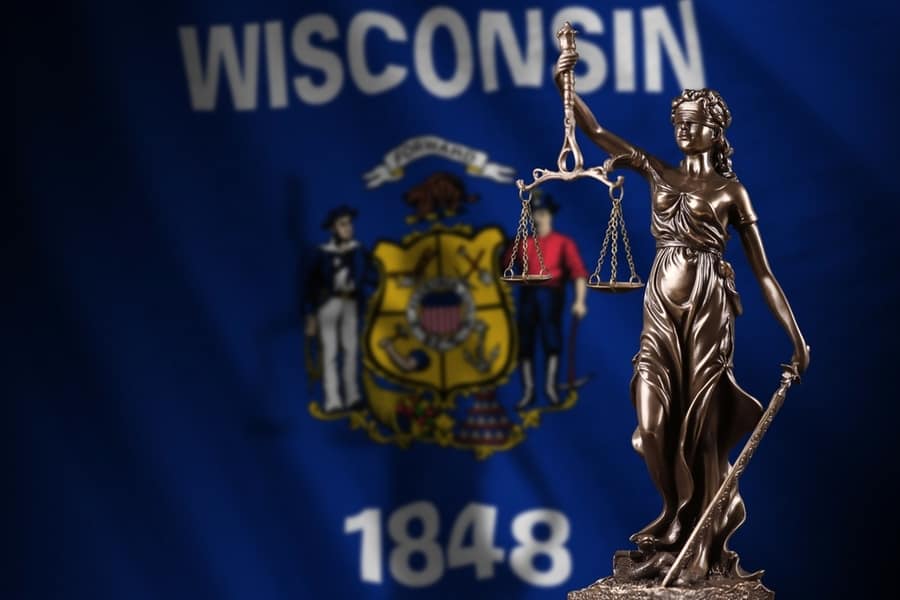
Bartending is a great way to earn extra cash, meet exciting people, and build soft skills like communication and working with diverse people. Because it’s mostly at night, you can still study while earning money on the side or even become a freelance bartender to supplement your income.
But how do you get a bartending license in Wisconsin?
First, you need to meet specific legal requirements set by the state, such as being over 18 years of age. Additionally, you must have a clear criminal record and no historically documented felonies and attend an accredited bartending course. Finally, after following your certified course, you need to apply for a bartending license in the municipality where you want to work.
First, we’ll look at the requirements set by Wisconsin’s state laws before you can become a bartender. Afterward, we’ll examine some aspects addressed in a bartender’s course, how long it takes to get your operator’s or bartending license from the city clerk, and what you can expect to earn as a bartender in Wisconsin.
What Wisconsin State Law Requires

Before we get carried away about making a few extra dollars each month, let’s first consider the legal requirements to become a bartender in Wisconsin.
The operator’s license (bartending license) is governed by Wisconsin statutes 125.04, 125.17, and 134.66 (click on each link to read each statute in detail). In summary, the laws state:
- You must be older than 18 to become a bartender in Wisconsin.
- You cannot have a criminal record, i.e., have a documented history of breaking the law or have ever been convicted of a felony.
- You must complete a bartending course, otherwise known as a responsible beverage server training program.
- Only certificates from accredited institutions are accepted.
- Pay the required fees at the municipality offices for an operator’s license (also known as a bartending license)
- You don’t have to be a resident of Wisconsin to obtain your license.
- Your license is only valid in the municipality where the city clerk issued it — it doesn’t matter if you live and work in different municipalities.
What’s Covered in a Bartending Course?

During the course, you’ll learn all the required information to receive a bartender license/permit to sell and serve alcohol in Wisconsin. Some of the factors you’ll cover include legal aspects such as the Dram Shop Law.
The dram shop law states that the establishment (bar, tavern, pub, nightclub, or restaurant) is responsible for the acts committed by an intoxicated customer who causes harm.
The establishment or bartender did not cut them off or refuse to sell them more alcohol. You’ll learn how to tell whether a customer is intoxicated and take action from that point. So, as much fun as it may be to be a bartender, you still need to take responsibility for customers.
You’ll also learn about state alcohol serving and selling laws, how to avoid providing underage drinkers with alcoholic beverages, and how to check IDs if needed.
Other things you’ll learn include standard drink sizes, the effects of alcohol (tying in with how to tell if a person is intoxicated), and how to be a responsible bartender.
How Long Does It Take To Get Your License?
The ancient game of bureaucracy is alive and well in every aspect of our lives, and the same is true in Wisconsin.
So before applying for bartending jobs, you should complete an accredited Wisconsin Responsible Serving course approved by the Wisconsin Department of Revenue. Without a certified course, your license won’t even be worth the paper it is printed on.
The course can take a few days or weeks, depending on your schedule and when lectures take place, and when the next available exam date is.
Some courses are offered entirely online, and you can work through the course material at your own pace to ensure you understand every aspect of what it means to be a responsible bartender in Wisconsin.
Once you’ve completed an accredited course, you must apply and pay for your license in person with the city clerk. This process is usually completed within a few weeks, sometimes even a month. Again, patience is essential while you wait for your license.
How Much Can You Earn as a Wisconsin Bartender?
The minimum wage in Wisconsin is linked to the federal minimum wage, which is $7.25 per hour. Although this doesn’t sound great, it is a starting point.
On top of your minimum wage, you’ll also get tips from customers. Tips will depend on a few factors, like the type of establishment, the shift you work, and whether you work weekdays or weekends.
Tips can even vary from one shift to the next at the same bar. For example, on weekends, you’ll be much busier and make more tips when compared to weekdays. On average, the national average is around $150 per shift in tips.
Again, remember, this depends on the establishment and the type of clients that visit. Sometimes you’ll make less than the national average of $150 per shift, and other times you’ll greatly exceed the national average.
The key is to give your best and understand that some customers are what they are — rude customers and terrible tippers.
Don’t let this get you down because deep in your heart, you know you’ve served them with pride and given them the best possible service, and the fault lies with them and not you.
Conclusion
After satisfying all the requirements of your bartending course, you need to apply for an operator’s license as per Wisconsin’s state laws.
Don’t think of this application as a hurdle but rather an opportunity to know that you’re operating within the limits of the law and helping to make the world a safer place to enjoy a drink.
Becoming a professional bartender also allows you to meet interesting people, learn how to deal with different personalities, and it is a great way to earn some extra cash on the side.









